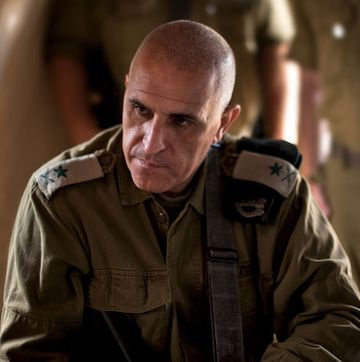Three Israeli soldiers killed in action in Gaza and 27 injured. Cabinet orders operation expanded
Three Israeli soldiers were killed and 27 injured in the Gaza Strip Wednesday, July 30, on the 23rd day of Israel’s counter-terror operation Defensive Edge against Hamas. A bomb planted in the wall of a building in Khan Younes blew up as the soldiers went in to examine a tunnel shaft.
Maj. Gen. Sami Torjeman, OC Southern Command, told reporters that the soldiers had fought “stubbornly” and “seriously impaired” Hamas’ strength. Hundreds of enemy fighters have been killed, he reported, including scores of Hamas’ elite troops and some of the commanders hunkered down in their hideouts. Dozens too had been taken captive and were providing a stream of valuable intelligence. In all their direct engagements with Hamas in Gaza, Israeli units had come out the winners, the general reported.
It was inferred from Gen. Torjeman’s replies to questions that IDF special operation forces had gone into action in the Gaza Strip for the first time. He said that Israeli units had moved into new terrain in central and southern Gaza after standing in place for five days. They entered Khan Younes and Jebalya Tuesday night.
The general referred cautiously to the terror tunnels, which had been described officially as all taken care of earlier this week. He reported that four new tunnels had been discovered over and above those so far tracked and no more than “a few days” remained for the military to finish its “tunnel mission.”
He warned, however, that no reliable estimate could be made of the underground passages which the IDF has not yet discovered and which might be located in areas outside the battle zones.
Gen. Torjeman added that the vast scale of the tunnel-building project was beyond belief. With the amount of cement poured into those tunnels in the last four years, he said, the Palestinians could have built four modern hospitals, 20 schools or 100 kindergartens.
Asked about the misfortune at the Nahal Oz outpost, where five soldiers lost their lives Tuesday, the general commented, “I would expect a different outcome from an engagement with terrorists.” All the same, he stressed the infiltrators failed in their mission to attack civilians.
Asked why the army was not functioning on two levels: clearing up the tunnels while at the same time striking Hamas control centers in Gaza City, he replied: “The army acts according to the operational directives handed down by the political level.”
Gen. Torjeman’s first-hand account of the war fought under his command was the most lucid and convincing the public has seen in the entire offensive. At the same time, he offered no pointers to the next stage and where the conflict was heading. He was very clear about these decisions being up to the heads of government who are managing the war, Prime Minister Binyamin Netanyahu and Defense Minister Moshe Ya’alon.
As they led a security cabinet meeting Wednesday, those leaders were under heavy foreign pressure to terminate the conflict, especially by Western powers led by Washington. Former Israeli president Shimon Peres added his voice to Israel's detractors when, during a visit to injured soldiers in hospital, he declared: “The war has exhausted itself.”
He spoke into the empty space left when talk in the last five days of an impending ceasefire ran up against the immovable wall of Hamas’ rejection. A Palestinian delegation has sat on its luggage for four days packed ready for a trip to Cairo to take up Egyptian President Abdel-Fatteh El-Sisis’s proposal for resolving the Gaza crisis.
His only pre-condition was that both sides, Israel and Hamas, observe a ceasefire first. But Hamas politburo chief Khaled Meshaal demanded that in any ceasefire, Hamas be free to attack Israeli soldiers in the Gaza Strip. Cairo’s response was crisp: So don’t come.
After sitting most of the day, the Israeli security cabinet rejected any plan to end the war or interrupt it with a unilateral truce and instead approved is expansion. Its decision read:
“The IDF is directed to continue its powerful offensive against Hamas and other terrorist organizations in the Gaza Strip and complete the destruction of terror tunnels. This action has a significant impact on the field and smashes a strategic resource in which Hamas invested years.”
debkafile’s military sources: It remains to be seen what this decision means in practical terms. Are Israel’s armed forces instructed to expand the battle zones in earnest, or only marginally, just enough to put the squeeze on Hamas for an unconditional cessation of hostilities.


